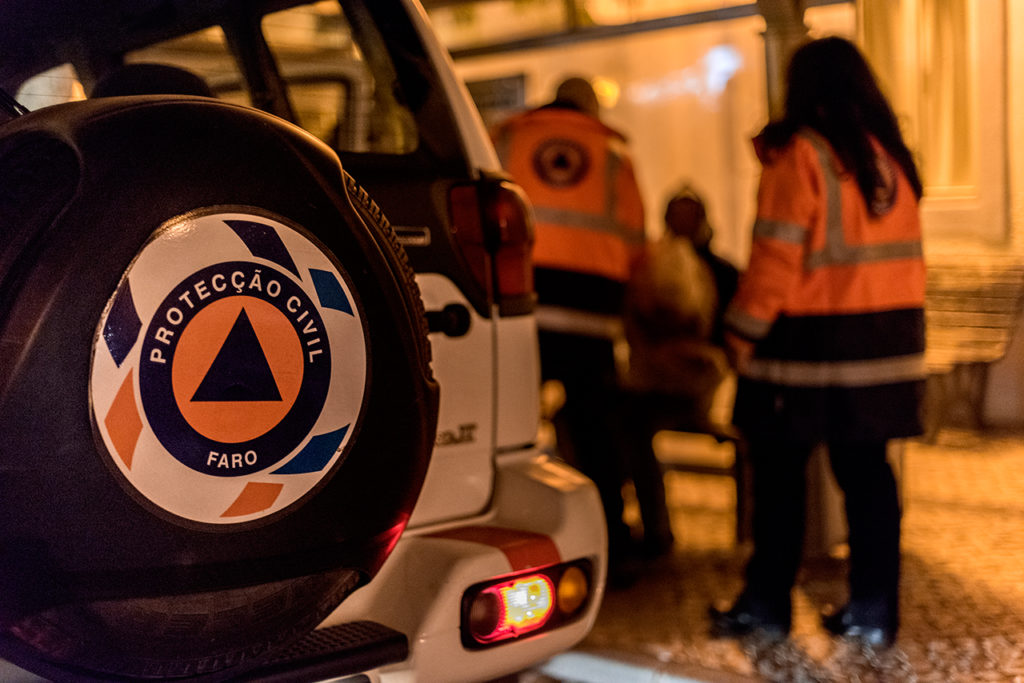The Homeless Planning and Intervention Center (NPISA) of Faro It currently provides support to a hundred people, through a partnership involving 18 institutions, including local authorities, social associations or public bodies, revealed the City Council.
About the profile of the homeless referenced by the Homeless Center of Faro, the municipality indicated that it is «mostly male, single, with low education, aged between 30 and 50 years».
The majority nationality is Portuguese, although in “recent years” there has been “a significant increase in several nationalities”, he added, without specifying.
NPISA, created in December 2010, «works in partnership with 18 entities in the municipality on the dimension of the phenomenon of people experiencing homelessness» and, on November 30th, it had 104 active social processes, indicated the Chamber of Faro in response to the Lusa agency, when reporting on the situation regarding the homeless population in the municipality.
The service, he clarified, is provided "regardless of nationality, racial or ethnic origin, religion, age, sex, sexual orientation, socioeconomic condition and physical and mental health condition", and the people referred are "homeless, living in public space, housed in an emergency shelter or with their location in a precarious location».
Active processes are always kept “in the status of ‘under monitoring’” for five months.
The area of the municipality “most affected” by this problem is “the territory of the Union of Parishes of Sé and São Pedro, particularly in vacant buildings and motor vehicles”.
Asked about a possible increase in the number of homeless people in the municipality, the Chamber of Faro he responded that, compared to last year, “an increase in the number of people” was recorded, but did not quantify it.
Among the measures implemented in the municipal response is the “TMN Project”, developed by MAPS – Movement to Support AIDS Problems – of Faro, which “inserts homeless people into society” and provides access to shared housing “as a first step” in this process of social adaptation.
This initiative has a multidisciplinary team and has two apartments with capacity for 10 users, a number that the Drug Addicts Help Group matches under another project, called “LEGOS Project”.
The MAPS Psychosocial Care and Monitoring Center also has “capacity for 35 users and currently supports 13 homeless people”, while the Social Emergency Accommodation Center (CAES) operates 30 beds in temporary accommodation, five for emergency accommodation and five destined for the municipality of Faro.
"Although in recent years the response in terms of accommodation for homeless people has increased, it is not enough to cover all the signs of homeless people eligible for accommodation", stated the municipality.
The NPISA partner network of Faro is made up of the City Council, Union of Parishes of Faro (Sé and São Pedro), the District Command of Faro of the PSP, the Algarve regional directorate of the Foreigners and Borders Service, the district center of Faro of the Social Security Institute, the Drug Addicts Help Group, the AIDS Problem Support Movement, the Santa Casa da Misericórdia de Faro and the Factory of the Church of São Pedro de Faro.
Also part of the network are the São Luís Parish Church Factory, the Algarve University Hospital Center, the Algarve Regional Health Administration, the Homeless Support Center, the Portuguese Red Cross – Delegation Faro-Loulé, the European Anti-Poverty Network, Cáritas Diocesana do Algarve, the National Republican Guard of Faro and the Employment and Vocational Training Center of Faro.



















Comments